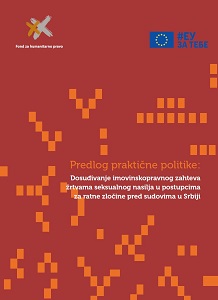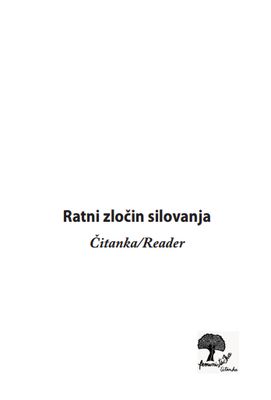
We kindly inform you that, as long as the subject affiliation of our 300.000+ articles is in progress, you might get unsufficient or no results on your third level or second level search. In this case, please broaden your search criteria.




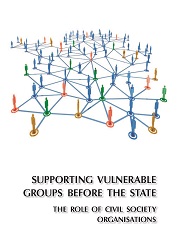
The study analyses the mechanisms for interaction between public institutions and NGOs in supporting four vulnerable groups: persons deprived of their liberty, victims of trafficking in human beings, domestic violence survivors, and persons seeking international protection and other vulnerable foreigner nationals. Furthermore, it identifies trends in the cooperation between institutions and NGOs in assisting these communities. The report sums up the profile of the bodies and organisations involved and identifies problems in their interaction. Instruments for cooperation between public institutions and NGOs in relation to each vulnerable group are reviewed in detail, both on legislative and practical level. Correlations between identified problems and aspects of the interaction between public institutions and NGOs that could help resolve these problems are highlighted. In conclusion, recommendations are made to involve civil society in providing comprehensive support, in particular legal, social and administrative assistance, to vulnerable persons. These recommendations rest on the shared experience and opinions by public authorities and civil society, as well as on applicable foreign models and good practices.
More...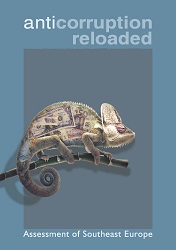
Corruption in Southeast Europe has been in the news, in the focus of public debate, and on the policy agenda of national and international institutions so often and for so long that its scrutiny hardly needs to be justified. It is precisely because it has proven to be such an intractable issue that innovative approaches to its understanding – and hence its reduction – are warranted. The EU accession prospects for the countries in the region – though distant – provide an enabling framework for action but it is local stakeholders, and in particular civil society who can bring about sustained progress in anti-corruption. The Southeast Europe Leadership for Development and Integrity (SELDI) has made the in-depth diagnosing and understanding of corruption and governance gaps in the region one of its main priorities, as a requisite condition for its advocacy of knowledge-driven anticorruption policies. This SELDI report fits in the development and implementation framework of the emerging regional anticorruption policy and infrastructure as exemplified by the SEE2020 Strategy’s Governance Pillar run by the Regional Anti-Corruption Initiative. Despite some important achievements – mostly with respect to the stabilisation of democratic institutions, the adoption of laws in key anticorruption areas, a reduction in petty bribery and growing public intolerance of corruption – anticorruption and good governance reforms are not consolidated, corruption among elected politicians and judges seems to be increasing and the enforcement of anticorruption legislation is haphazard. Anticorruption policies and institutions in the region will benefit immensely from the adoption of regular and accurate victimisation-survey based tool for measuring corruption and the rate of progress in good governance, similar to the special Eurobarometer on anticorruption, UNODC’s SEE monitoring of corruption and organised crime, and the Corruption Monitoring System employed by this report.
More...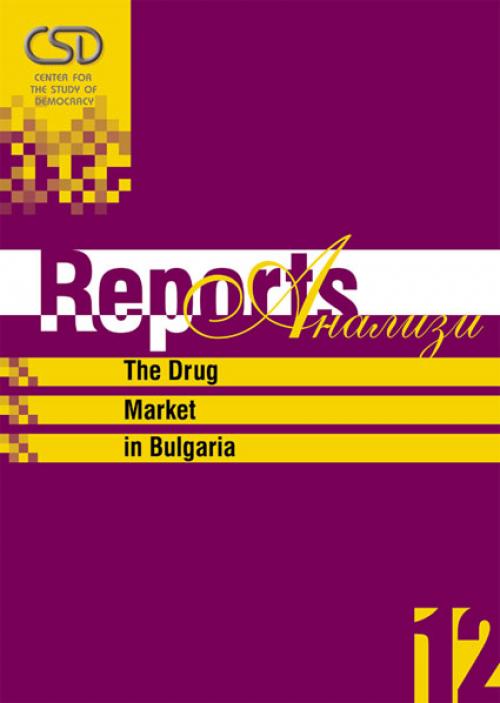
The Center for the Study of Democracy has undertaken a special inquiry into the topic of drug abuse - which was fueled by the drug epidemic of the late 1990s and has grown to become a real social threat - and the problem of drug dealing, which is a major mechanism for the generation of organized crime in Bulgaria. This report addresses drug supply and demand in Bulgaria with the ambition of mapping a vast information void and identifying the basic mechanisms and stakeholders of the drug market. However, the peculiarities of drug diffusion and consumption do not allow the use of the standard suite of economic research tools and vehicles throughout the study. This analysis has been divided into three sections. The first addresses the genesis of drug distribution, while the second describes its structure and functioning. The findings about supply presented in the first two parts are based on a series of in-depth interviews with dealers of different groups of drugs, long-term drug users, with police and security officers (experienced in combating drug traffic, drug production, and drug dealing), doctors, and civil organizations engaged in treatment services to drug addicts. Section 3 highlights drug demand, and brings into play the findings of the First National Population Survey on Drug Consumption in Bulgaria conducted by Vitosha Research. For the purpose of this study, CSD and Vitosha Research used the research tools of the European Monitoring Center on Drugs and Drug Addiction (EMCDDA). While paying attention to a variety of views, the team of authors has tried to find common ground upon which to evaluate the actual number of drug users in the country. Even if population-based surveys are often unreliable due to stigmatized and hidden patterns of drug use, they are the type of surveys that provide a comprehensive representation of the situation in the country, as well as reference material for later in-depth studies.In addition, a series of indirect variables, tailored to Bulgarian circumstances, were drawn up to register psychoactive substance use. Two more surveys, of the qualitative type, were conducted: one among heroin addicts and frequent users of soft drugs, and another among experts and treatment agencies. This report was developed by the CSD as part of project evaluating the patterns of drug supply and demand in Bulgaria.
More...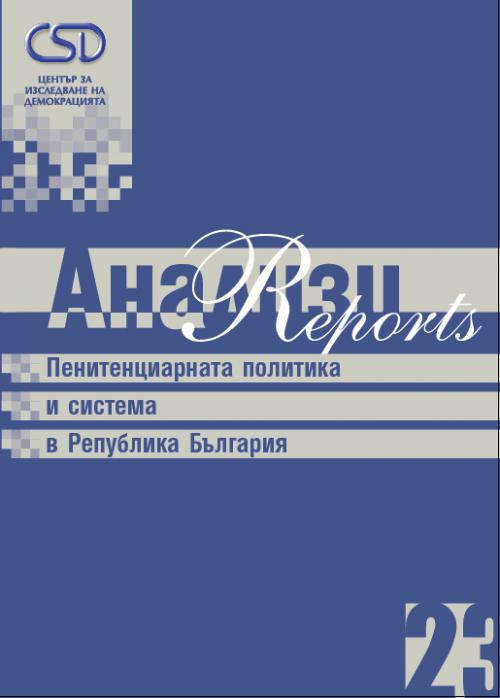
The report explores to what extent Bulgaria has introduced the European standards in the legal regulation of the prison system and the execution of the penal sanction of imprisonment, how are they implemented in practice, what is the State’s penal policy and strategy in this area in general and in respect to drug-addicted prisoners in particular, and what is the opinion of the people working in the penitentiary system and the non-governmental organizations monitoring the activities of penitentiary facilities.
More...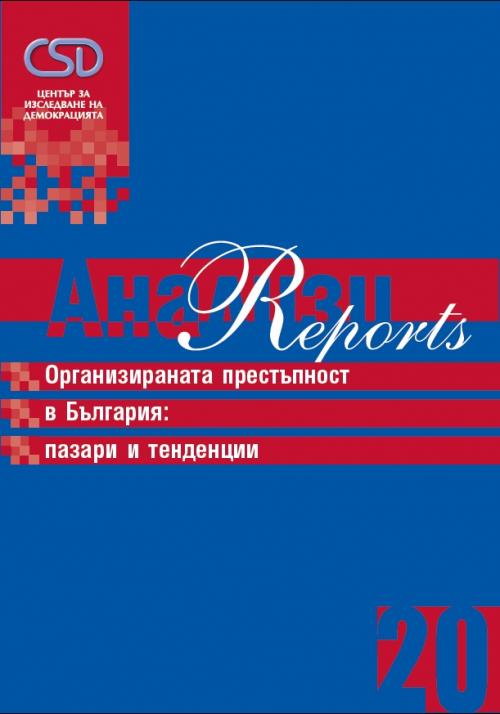
The report Organized Crime in Bulgaria: Markets and Trends summarizes the analyses carried out by the Center for the Study of Democracy throughout the last decade which have focused on specific aspects of organized crime in Bulgaria (contraband, the drug market, tax fraud, human trafficking, arms proliferation, etc.), the systemic spread of corruption, and the linkages between the two. The report presents the latest trends and manifestations (or market niches) of syndicate crime and its particularly damaging effects. It goes further to offer a historical review of the facts and available expertise in the area, and to draw conclusions about the origin, characteristics and developmental features of organized criminality in Bulgaria in the context of the transition to democracy.
More...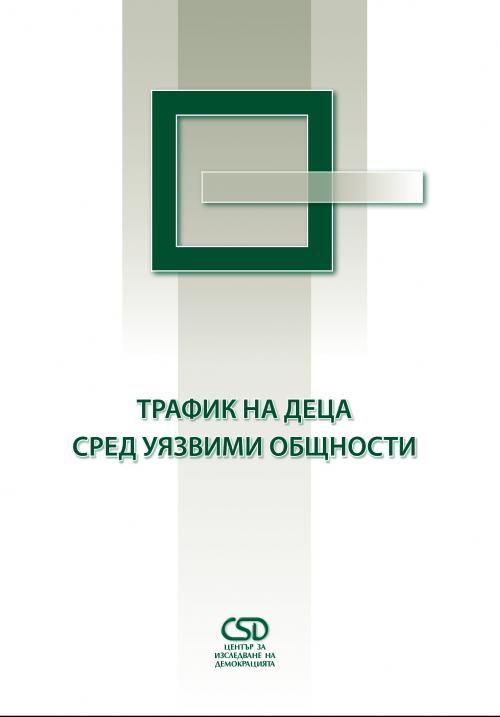
The current report looks at three specific forms of trafficking in persons: child trafficking for begging, for pickpocketing and for sexual exploitation of boys and the way they manifest themselves among Roma communities. The report examines the profiles of victims and discusses the vulnerability factors that make the Roma minority a particular group at risk. The study provides empirical knowledge on the mechanisms of recruitment and exploitation of victims in order to inform identification efforts and counter-trafficking responses. Particular attention is devoted to the policy and measures for assistance of victims. In this field, the report identifies specific gaps in assistance and the way they affect Roma victims in particular, and suggests how child victim assistance could be improved. The active involvement of Roma organisations in the research through participatory methods aimed to gain a deeper understanding of the risk factors involved, bring knowledge back to the communities and support Roma experts’ involvement in counter-trafficking policy and mechanisms.
More...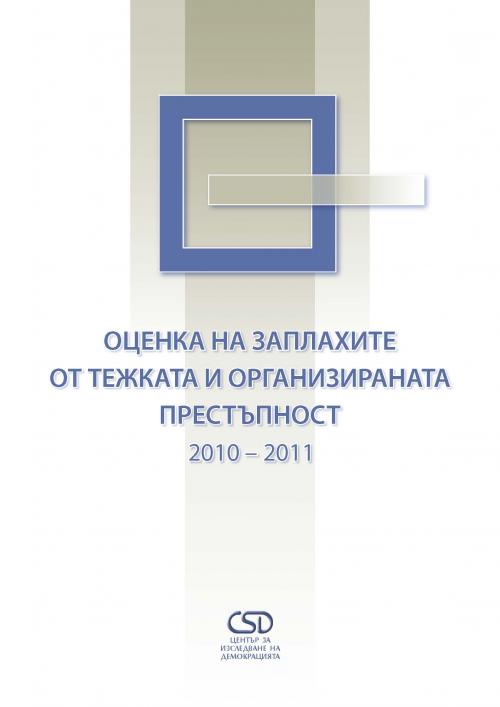
The report Serious and Organised Crime Threat Assessment 2010-2011 (SOCTA) analyses the current state and trends in serious and organised crime in Bulgaria. The report estimates the threats generated by these criminal activities and ranks them according to the harm they cause Bulgarian society. The analysis is intended to support a better informed evidence-based design of anti-crime policies.
More...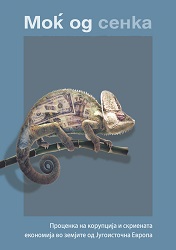
The current report, prepared by the Southeast European Leadership for Development and Integrity (SELDI) — the largest indigenous good governance initiative in SEE — makes an important contribution to the regional approach to anticorruption. It provides a civil society view of the state of corruption and comes in the wake of the 2014 SELDI comprehensive assessment of the various aspects of the legal and institutional anticorruption environments of nine SEE countries. In 2016, SELDI followed up on these assessments with an update of corruption monitoring and a special focus on state capture in the energy sector and the corruption–hidden economy nexus. The report underscores the need for broader political action for reform, which seems blocked or narrowing across the region. Inside pressure for such action has been suffocated by economic necessity and/or ethnic divisions, and the ossification of political and economic establishments. Outside pressure, delivered mostly by the European Union has been seen as wanting in relation to the size of the problems in the past couple of years due to a succession of internal and external crises. The authors underline that in none of the countries in the region has there been a clear sustained policy breakthrough in anticorruption though efforts to deliver technical solutions and to improve the functioning of the law enforcement institutions, mostly with support from the EU, have continued and even intensified in some cases. This has led to further slow decline in administrative corruption levels but at the expense of waning public support for reforms and of declining trust in national and European institutions.
More...
In prison, certain groups of inmates are subject to disadvantages due to specifics of their origin, gender, sexual orientation, age, etc. These groups usually need special treatment, which is not always provided, which leads to unequal treatment and violation of their rights. This handbook examines the situation of such vulnerable groups within the prison systems of Belgium, Bulgaria, Germany, Lithuania and Spain. Starting from the classification of the UN Handbook on Prisoners with special needs and looking at the different national contexts, the authors identify different groups as vulnerable in different countries. In order to encompass as many groups as possible, their list was extended to include some particularly marginalised groups, such as sex offenders, prisoners with disabilities, etc. Each group is viewed in context, explaining the situations of vulnerability both generally and in the selected countries. From one side, the handbook presents the efforts for compensation of vulnerabilities in every country available in the legislation or provided by prison authorities or other actors. From the other side, it identifies the gaps in the measures and practices, which vary both from country to country and from group to group.
More...
Publication looks over the situation of drug users in two European countries – Norway, known for its social and welfare-oriented state, and Bulgaria, which since the beginning of the transition from totalitarism to democracy lacks sustainable policies on prisons and drugs. The aim of this work is to comparatively present the penal policy towards drug users and the measures taken for convicted people addicted to narcotic substances, to identify those features which can be transferable and can assist Bulgarian authorities to improve the situation of drug users in and outside the prison. Finally, this research will try to propose concrete measures to be taken both within the penitentiary system and as crime prevention efforts among drug users.
More...
This magazine is the English version of selected articles published in the pages of the review Paměť a dějiny (Memory and History), which is issued by the Institute for the Study of Totalitarian Regimes.This magazine is the English version of selected articles published in the pages of the review Paměť a dějiny (Memory and History) ISSN 1802-8241, which is issued by the Institute for the Study of Totalitarian Regimes. The original version of the journal Paměť a dějiny (Memory and History) is the part of CEEOL also.
More...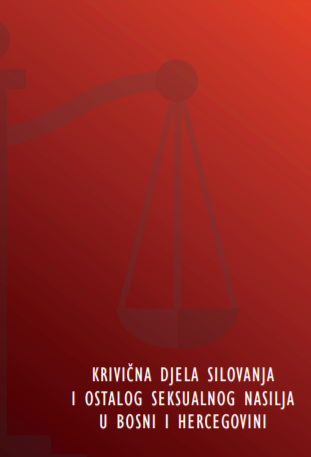
Silovanje se uglavnom definira kao seksualni odnos ili druga vrsta seksualne penetracije počinjena od strane učinioca tog krivičnog djela prema žrtvi, bez njenog pristanka.1 Razlike u definiranju krivičnog djela silovanja postoje između različitih zakonodavstava, u zavisnosti od poimanja djela koja su ta društva usvojila, na osnovu tradicijskih, kulturoloških i društvenih vrijednosti koje se štite krivičnim zakonodavstvima, što je uveliko uvjetovano i stepenom njihovog razvoja u zaštiti ljudskih prava.
More...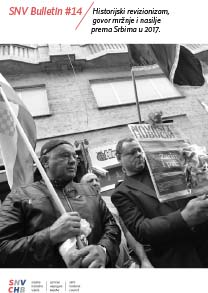
"A group of about three to four people in their 40s approached us. They were visibly inebriated and started swearing at 'our Chetnik mother', asking 'how come we were not ashamed to come to Zagreb'. My wife and I looked at each other and remained silent. What were we to do, we were here with small children? We waited for their rampage to end but it went on for a while and then they left with the message that they would take care of us and the children, should we ever return", Dušan Kovačević, the director of the Novi Sad music festival Exit, said during his visit to Zagreb. The incident occurred in mid-February 2017, the same month that stickers appeared on the streets of Vukovar with the invitation to hang Serbs, and that members of the extreme right party Autochthonous – Croatian Party of Rights (A-HSP) marched through the Croatian capital dressed in black. Last February will also be remembered as a month when an Ustasha graffiti appeared on the Orthodox church of Holy Trinity in Bjelovar, a protected cultural monument. Also in February, the Social Democratic Party (SDP) MP Milanka Opačić, received police protection because of the photomontage inspired by her Serb nationality, published by the portal Dnevno.hr. Dalmatia was no exception to this trend. At the end of February, organisers of a carnival in Kaštele near Split, torched before hundreds of spectators and effigy of Milorad Pupovac, the president of the Serb National Council (SNC) and of the Independent Democratic Serb Party (SDSS).
More...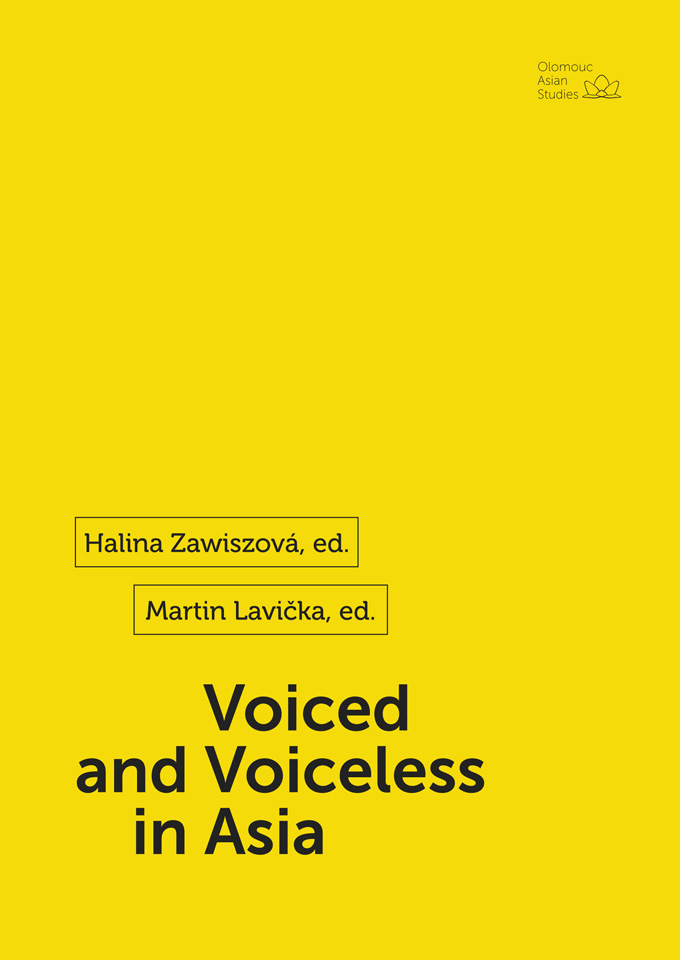
This volume consists of 19 chapters that reflect the titular theme - Voiced and Voiceless in Asia - from a variety of angles, making use of diverse scholarly approaches and disciplines, while focusing specifically on China, India, Japan, and Taiwan. The chapters are broadly divided into two parts: (1) Politics and Society, and (2) Arts and Literature, although the texts included in the second part also deal with social themes. In addition to historical topics, such as Japanese colonialism or Chinese agricultural reforms in the 1950s, the volume also addresses current issues, including restrictive Chinese policies in Xinjiang, Japanese activist movements against gender-based violence and discrimination, or the problems of migrant laborers in India and performing arts in Japan during the COVID-19 pandemic. Likewise, it provides insight into satirical woodblock prints from the Boshin War period or works of literature produced in Japanese leprosariums in the first half of the 20th century, as well as into selected topics in contemporary Chinese, Japanese, and Sinophone Tibetan literature. Collectively, the chapters comprised in this volume narrate the multifaceted relationship between 'voice' and 'power,' thus highlighting the fact that the question of 'voice' is closely intertwined with a variety of social, political, and cultural issues.
More...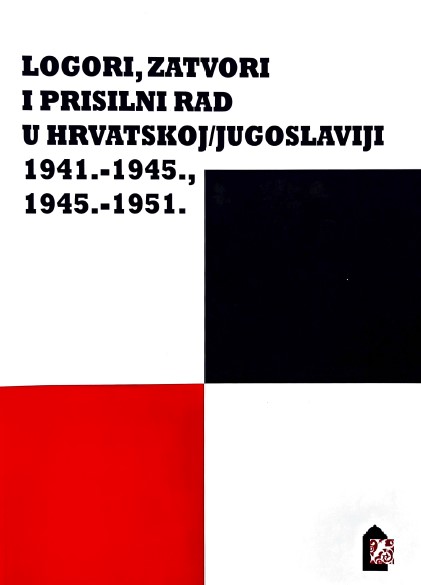
Thirteen presentations from the scientific conference "Camps, Prisons, and Forced Labor in Croatia/Yugoslavia 1941-1945, 1945-1951" held on May 12, 2009, at the Croatian Institute of History are published in this proceedings. Seven Croatian, five Serbian, and one German historian presented the results of their latest research on deprivation of freedom, camps, prisons, and forced labor during World War II and in the post-war period.
More...